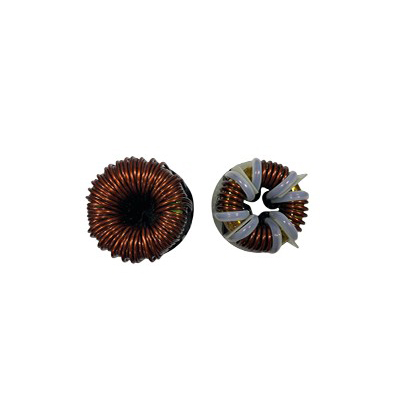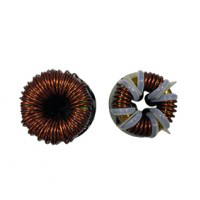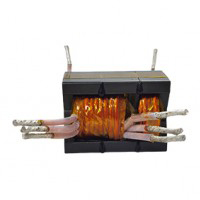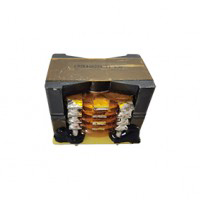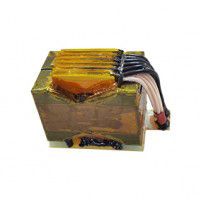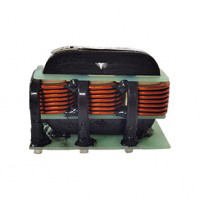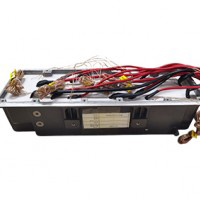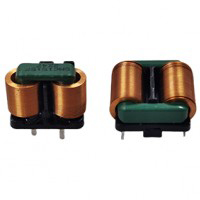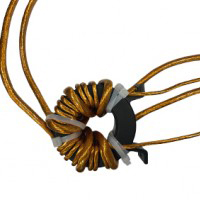Magnetic toroidal common-mode inductors are sensors commonly used in electromagnetic compatibility (EMC) testing and interference monitoring of electronic products. By detecting the magnetic field of the current loop, magnetic toroidal common-mode inductors can measure common-mode noise in the circuit and help engineers evaluate the level of electromagnetic interference. In this article, we will explorethe working principle, structural characteristics, application fields, and future development trends of magnetic toroidal common-mode inductors .
1. Working principle of magnetic ring common mode inductor
A magnetic toroidal common-mode inductor is a specially designed inductor, generally consisting of a circular magnetic toroid and several turns of coil. When the circuit under test is energized through it, the current loop will generate a magnetic field. This magnetic field will pass through the magnetic toroid in the magnetic toroidal common-mode inductor, causing a voltage signal to be induced in the coil. By measuring the size of this voltage signal, the common-mode noise level in the circuit can be indirectly measured.
The working principle of the magnetic ring common mode inductor is based on Faraday's law of electromagnetic induction and the magnetic properties of the magnetic ring. When there is common mode noise in the circuit, it will cause the change of the magnetic field, which will cause the change of the magnetic flux in the magnetic ring, and finally induce a voltage signal. By reasonably designing the structure and parameters of the magnetic ring common mode inductor, its sensitivity and measurement stability can be improved.
2. Structural characteristics of magnetic ring common mode inductors
1. Magnetic ring: The magnetic ring is the core component of the magnetic ring common mode inductor. It is usually made of materials with high magnetic permeability, such as ferrite materials. The magnetic ring can concentrate the magnetic field in the circuit and improve the sensitivity of the inductor.
2. Coil: The coil is located inside or outside the magnetic ring and is used to sense the voltage signal generated by the change in the magnetic field. Parameters such as the number of turns, wire diameter, and winding method of the coil will affect the inductive effect and frequency response of the inductor.
3. Shell: Magnetic ring common mode inductors usually have a shell that wraps the coil and magnetic ring to protect the internal structure and reduce the impact of external interference on the inductor.
4. Connector: The connector is used to connect the magnetic toroidal common mode inductor to the measuring device or the circuit under test to transmit the induced voltage signal.
The magnetic ring common mode inductor has a simple structure, small size, easy installation and use. At the same time, its high sensitivity and wide frequency response range make it widely used in the field of electromagnetic compatibility testing and interference monitoring.
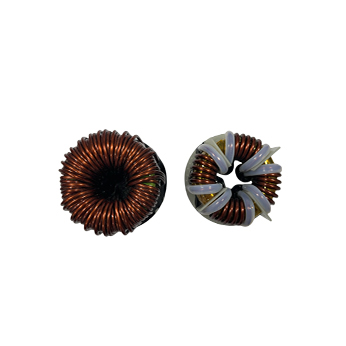
3. Application fields of magnetic ring common mode inductors
1. Electromagnetic compatibility test: Magnetic common mode inductors are usually used in electromagnetic compatibility tests to measure the common mode noise level in the circuit and evaluate the electromagnetic compatibility performance of electronic products.
2. Routine testing: Magnetic common-mode inductors can also be used in routine testing to detect potential interference sources in the circuit, helping engineers find the cause of the interference and eliminate it to ensure the normal operation of the product.
3. Electromagnetic interference monitoring: In the fields of industrial control systems, communication systems, etc., magnetic ring common mode inductors can also be used to monitor electromagnetic interference in the environment to ensure the stable operation of the system.
Magnetic toroidal common-mode inductors play a vital role in the above-mentioned application fields, helping companies ensure product quality and electromagnetic compatibility, and improve production efficiency and market competitiveness.
4. Future development trend of magnetic ring common mode inductors
With the continuous updating of electronic products and the complexity of electromagnetic environment, magnetic ring common mode inductors are also gradually developing and improving. The future development trend of magnetic ring common mode inductors mainly includes the following aspects:
1. Versatility: In the future, magnetic toroidal common-mode inductors may gradually develop into multifunctional and multi-purpose sensors that can be flexibly used in different fields and applications.
2. High frequency response: In the future, magnetic ring common-mode inductors may further improve the frequency response range to meet the measurement needs of higher frequency signals.
3. Intelligence: Combined with the Internet of Things and artificial intelligence technologies, magnetic toroidal common-mode inductors may realize intelligent monitoring and analysis in the future, providing engineers with more real-time data and decision support.
4. Improved accuracy: In the future, the accuracy and stability of magnetic toroidal common-mode inductors may be further improved to meet the increasingly stringent requirements of electromagnetic testing and monitoring.
As an important electromagnetic compatibility testing and monitoring tool, magnetic toroidal common mode inductors play an important role in the production, development and application of electronic products. In the future, with the continuous advancement of technology and the increase in market demand, magnetic toroidal common mode inductors will continue to develop and improve, providing more support for industry development and product quality improvement.

